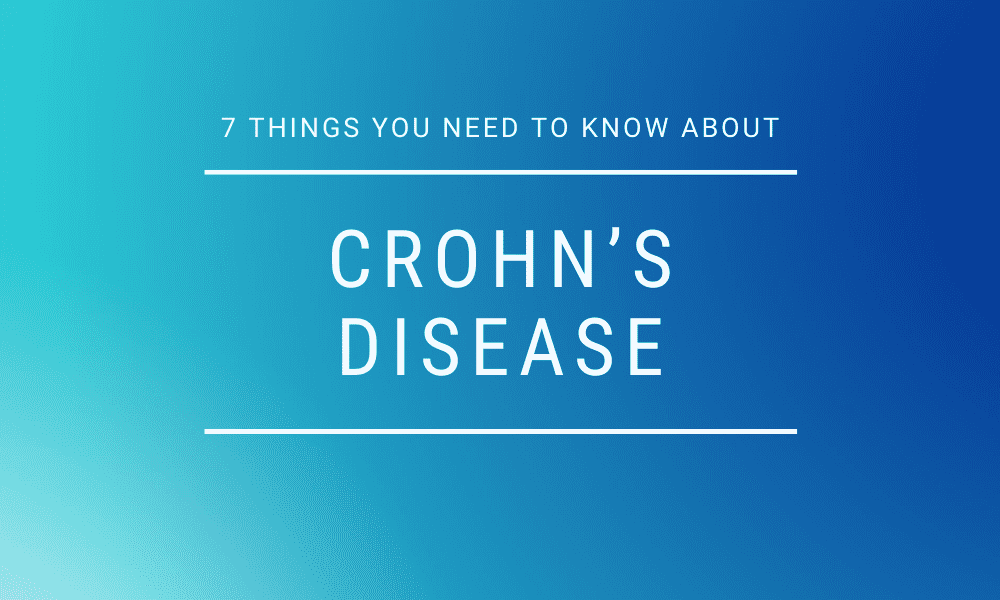Like most autoimmune diseases, Crohn’s is unique to each person and requires a personalized treatment plan.
Here are 7 things you should know about Crohn’s disease
1. It is Different for Everyone
Crohn’s disease is an autoimmune condition that typically causes inflammatory bowel disease (IBD). It causes the immune system to attack the gastrointestinal tract, which can lead to inflammation. These attacks cause various symptoms such as pain, diarrhea, rectal bleeding, and fever. In most cases, Crohn’s can affect the lower portion of the small intestine and the upper area of the large intestine.
The symptoms will ultimately depend on the area of the body affected by Crohn’s disease.
It is still unclear what causes these differences.
2. Common Symptoms
Most people with Crohn’s disease will experience a cycle of remissions and flare-ups. During the remission phase, patients will get respite from the disease.
Here are common symptoms during flare-ups:
- Diarrhea
- Painful bowel movements
- Weight loss
- Blood in stool
- Fatigue
- Anemia
- Abdominal pain
Crohn’s disease can also affect sufferers in other ways, including skin lesions, eye inflammation, and joint pain.
3. More Cases of Crohn’s Disease are Surfacing
According to the Crohn’s and Colitis Foundation of America (CCFA) Over 700,000 Americans have been diagnosed with Crohn’s disease. The number of cases is increasing by the day. It is worth noting that diseases affecting the immune system have increased in countries that have seen massive industrialization.
Crohn’s disease equally affects men and women, and symptoms can start at any age. It is common to notice symptoms in adolescents and young people between the ages of 15 and 35.
4. No One Knows What Causes Crohn’s Disease
Doctors don’t know what causes Crohn’s disease. Researchers believe that several factors could be responsible, these include:
- A person’s genetics
- Environmental triggers such as pollution, medications, infections, and diet
- A compromised immune system
The environmental connection between Crohn’s disease is the focal point of the research.
5. Remission Doesn’t Mean That Medication Should be Stopped
Good medical attention can often cause Crohn’s disease to go into remission. But this doesn’t mean that the patient should stop taking medication altogether.
People who stop taking medication have a 50 percent risk of flare-ups the following year. And this can lead to hospitalization, surgeries, and a host of other complications.
6. Smoking Can Make Things Worse
Researchers have found a link between Crohn’s disease and smoking cigarettes. People who smoke are more likely to develop Crohn’s disease and tend to experience more symptoms. On average, smokers have a 35% higher recurrence rate than nonsmokers.
7. There is no One-Size-Fits-All Treatment
Crohn’s disease can be treated in several ways. Treatment depends on the frequency of flares and the symptoms. Because of this, the treatment has to be tailored to the specific symptoms of the individual. Prominent medical therapies include steroids, biologics, and immunosuppressives.
Researchers are looking at more effective treatment options including manipulating the fit bacteria with diet, prebiotics, and probiotics.
To make an appointment with a physician at irvingprimarycare.com, visit https://www.healthonemedicine.com or call (469)262-5762.

